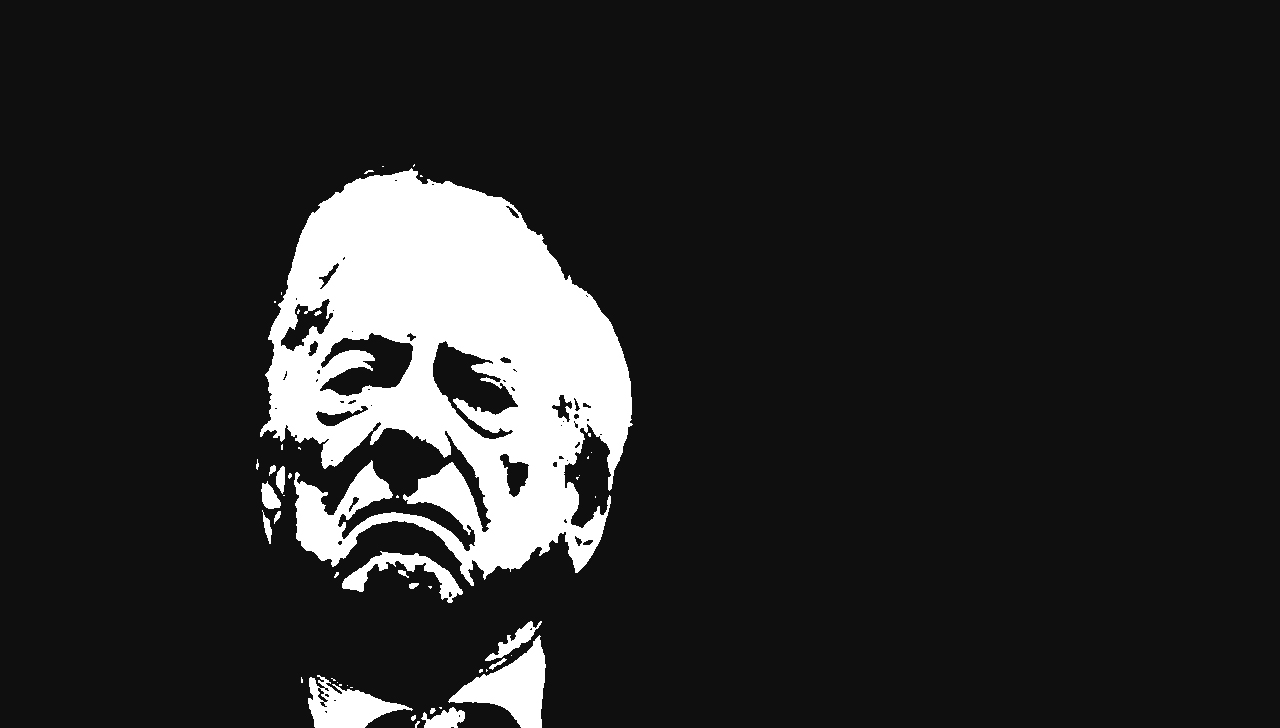By Atilio Borón
I must admit, Vargas Llosa is, as Jorge Luis Borges would say, “incorrigible.” The passage of time is implacable and in his case, unlike others, it has accelerated his physical but above all mental degradation. The Peruvian storyteller has already succumbed to what Alejo Carpentier, in his extraordinary novel (The Kingdom of this World), called “the irreparable outrage of the years.” His most recent public statements, reproduced urbi et orbi by the media scoundrels at the empire’s service, plunge him even deeper into ignominy and opprobrium. Invited to the Buenos Aires Book Fair, he took the opportunity to rub elbows with the most rancid of the Argentine authoritarian right-wing, mortal enemy of democracy in this country. And shortly afterward, or more precisely on May 11, he gave a talk in Montevideo where, when asked his opinion about the future elections in Brazil, he declared that “Bolsonaro is a very difficult case. His antics are very difficult for a liberal to accept. Now, between Bolsonaro and Lula, I prefer Bolsonaro. Even with the antics, he is not Lula.” He lamented that in Europe there is a “kind of infatuation with Lula” despite the fact that the former Brazilian president “was in prison” and the judges convicted him “for thievery.”
It is obvious that the author of Conversation in the Cathedral is trapped at the bottom of an ideological whirlpool that leads him to the most repugnant extremes of political thought. Only a fatigued or hopelessly worn-out mind can qualify as “antics” that numerous intellectuals and academics, as well as various social movements and popular forces in Brazil, have described as genocidal policies. There are reports from Brazil’s Senate that ratify this, and complaints at the Hague’s International Criminal Court, from the Articulation of Indigenous Peoples of Brazil (APIB), for the crimes of genocide and ecocide. Of course, for the sad character we are dealing with, these are nothing but propaganda maneuvers, artifacts of the left’s “cultural war,” in its relentless combat against the forces of “freedom,” which have in the multi-prizewinning writer their figurehead and greatest worldwide propagandist.
That superficiality with which he judges Bolsonaro’s crimes goes hand in hand with the airiness with which he assures that judges “condemned Lula as a thief”. He fails to say that it was not “judges” but Judge Sergio Moro, a diligent student of the “Best Practices” courses that the U.S. government organizes annually to train the minds of judges, prosecutors, attorneys, academics, journalists, and politicians brought to that country to learn from a group of experts how justice is administered, journalism and teaching are practiced and the good laws that the empire needs are elaborated. Somersaulting several centuries backward, Moro took modern law back to the times of the Holy Inquisition and condemned Lula “because he had the conviction that this man had stolen,” although he acknowledged that he did not have a single piece of evidence to substantiate his ruling. Of course, this was lawfare by means of which it became necessary to remove Lula from the electoral competition and facilitate the win of Bolsonaro, who rewarded the corrupt judge by appointing him Minister of Justice and Public Security of Brazil. But again, for Vargas Llosa, these are all unimportant details. What is certain is that, given the choice between Bolsonaro and Lula, he prefers the violent genocidal friend of the paramilitaries and mortal enemy of human rights, over the former metalworker.
Vargas Llosa deserves the most categorical repudiation. A little over a year ago he wrote a long article extolling two shadowy Colombian “narco-governors:” Álvaro Uribe Vélez and Iván Duque. Names associated with the most horrendous crimes perpetrated in that long-suffering nation: “mass graves,” “false positives,” displacement of millions of peasants by paramilitary henchmen, and indiscriminate killings. More recently, under the Duque government, Colombia has entered an endless sequence of assassinations of political and social leaders, a true drop by drop genocide that enjoys official impunity. And shortly thereafter, unhinged by the prospects of Pedro Castillo’s possible triumph in the Peruvian presidential elections, the novelist burned all of his idols, abjured all of his convictions and put the entire immense propaganda apparatus of the empire at the service of Keiko Fujimori, the same who just a few months previously was accused of corruption and total complicity in the crimes of her father, former President Alberto Fujimori. As they say, Don Mario is a man of principles…
But one must take the analysis one step further because the tremendous political and ideological involution of this character only gives the appearance of an idiosyncratic question, exhausted by his arrogant vanity. The reactionary deviation of his thought is an exemplary illustration of the historical evolution of liberalism – in its most diverse currents – within the framework of a new general crisis of capitalism that has gathered force due to the radically changed international geopolitical balance in recent months. The siren songs of yesteryear, falsely democratic and respectful of human rights, have given way to an open apology for all kinds of despotism. This is what Vargas Llosa reflects in his public statements on the situation. Hence the names of his new heroes: Bolsonaro, Duque, Keiko … The market’s invisible hand has become the iron fist of fascism. Faced with such a threat, the people’s forces must not continue in sterile divisions. If they are not capable of uniting in the face of the monster that can already be seen in the serpent’s egg, the future of humanity will hang by a thread, and the worst dystopias will be children’s stories compared to what that vengeful, racist and oppressive rightwing will be capable of doing in order to defend its threatened interests and privileges.
Source: Blog Atilio Borón
Translation: Red en Defensa de la Humanidad – Cuba
[qpp]

